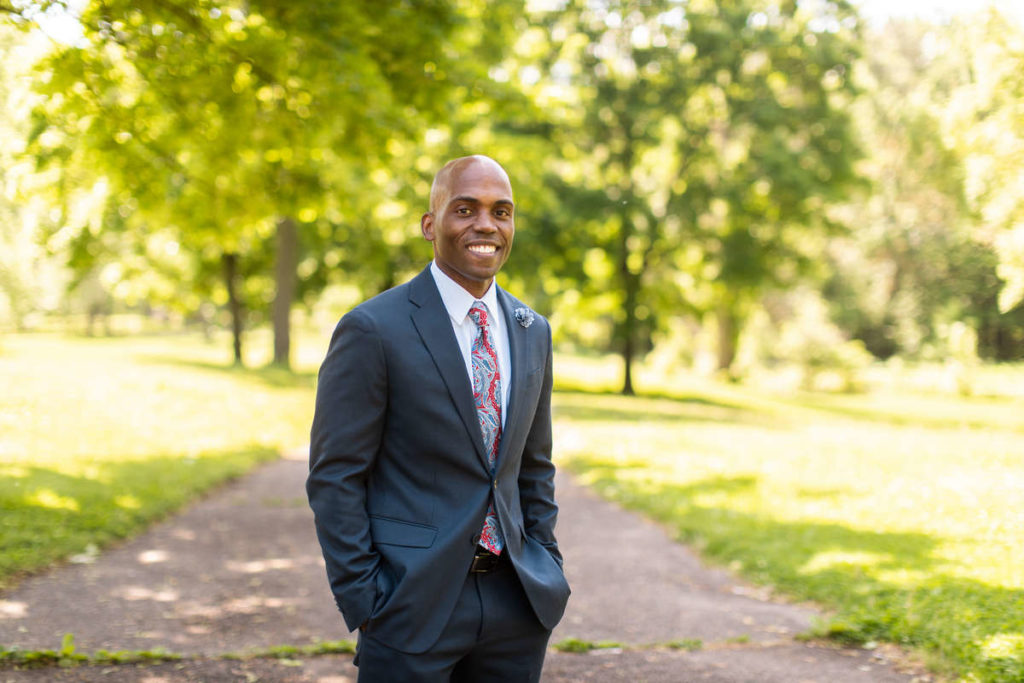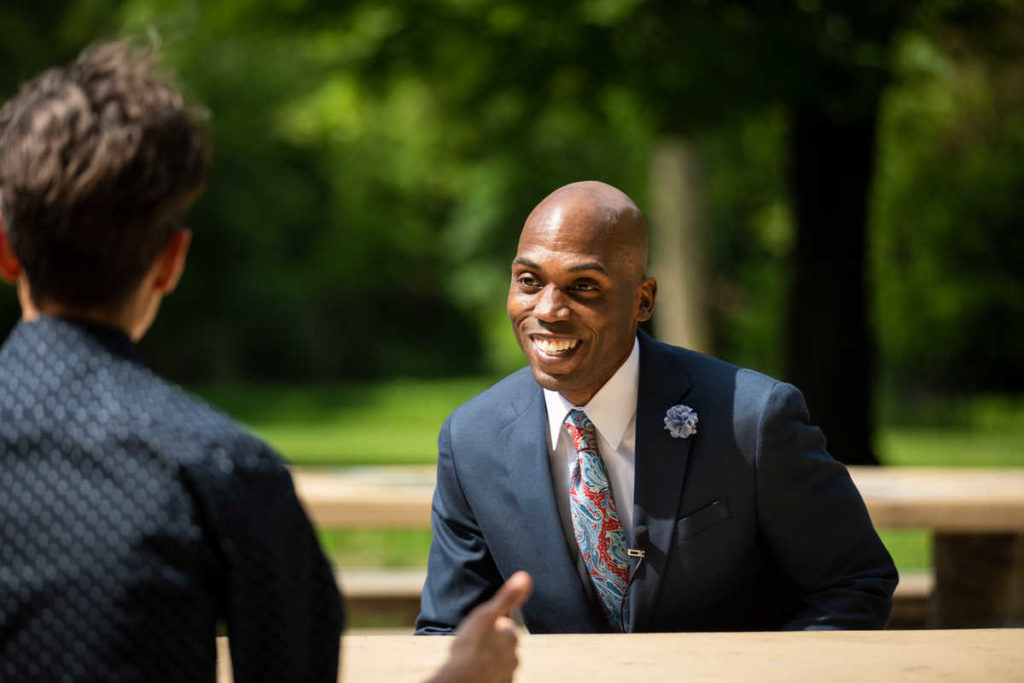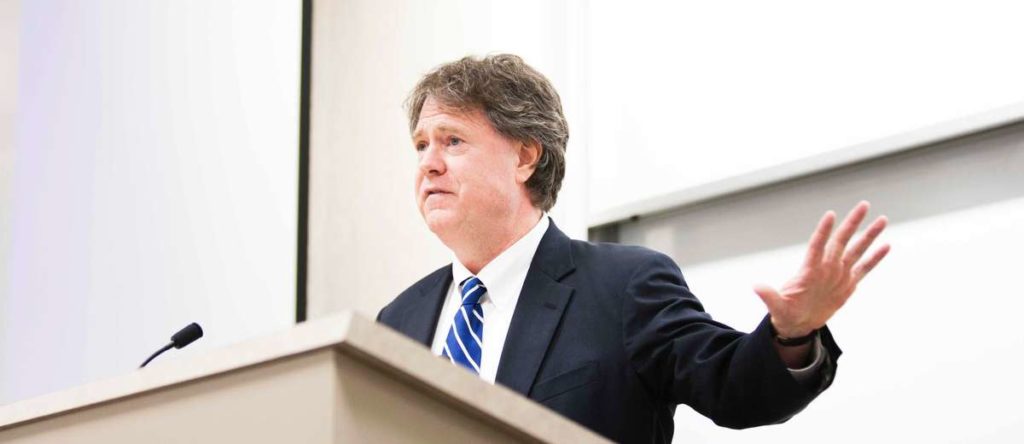Dr. Yohuru Williams, founding director of the Racial Justice Initiative at the University of St. Thomas, discussed recent court trials in a panel discussion he moderated between two of the university’s School of Law professors, Rachel Moran and Mark Osler, both former prosecutors. They examined what was at the root of the killings of George Floyd, Ahmaud Arbery and the two men in Kenosha, Wisconsin, shot by Kyle Rittenhouse. They compared these cases to the case of former Brooklyn Center, Minnesota, police officer Kimberly Potter, who fatally shot Daunte Wright in the line of duty after calling out, “Taser! Taser!”

“A lot of the more recent cases that we're talking about really pivot on people being able to make the case that they felt threatened and they took action, because they perceived that threat,” said Williams.
With claims of self-defense from seemingly everyday Americans being labeled as vigilantes or making citizen's arrests to the police officers who stop individuals for minor traffic violations or other low-level offenses saying the deceased were more to blame, leaves people questioning what is justice.
Williams opened the discussion with a question from the community on this topic. “We've seen so many cases of vigilantes or police officers killing people, then many debates on if [the actions were] warranted or if it was self-defense,” he said, adding that it leads to questioning of what kind of person was the victim.
Here are initial highlights from their conversation. For the full discussion, view the video.
Williams: Are these murders and trials an inevitable part of our system?
Osler: What the connecting tissue is between all these cases is who has the discretion.
This police violence. Does it go on forever, can we stem it? And the answer is yes. Can we ever eradicate any wrong completely? Probably not. But the level of police violence, especially racialized police violence, is completely unacceptable. And there's disparate outcomes that reflect the racism that is in the society as a whole, and you can't get past that.

One of the things that drives these incidents over and over again is that in this criminal justice system, we give a lot of discretion to prosecutors. I was a federal prosecutor. I had the ability to choose who we charged and with what. Police officers on the street have a lot of discretion too. If we accept that there is racism in our system, implicit bias and explicit bias, it is going to get into those discretionary decisions that people make unless we find a way to cabin them or have different people make those decisions.
When we look at the Rittenhouse case and the McMichael case, where there was the death of Ahmaud Arbery, there we are extending that problem of discretion from the police, where it's already troubling, to the community at large to act as vigilantes. And that's part of what that connective tissue is between all these cases – who has the discretion and what are the problems with underlying bias where we extend that discretion.

Moran: I’ll speak to the case of Gregory and Travis McMichael and William "Roddie" Bryan, their neighbor, who were charged with and convicted of the murder of Mr. Arbery.
The issue in that case was the citizen's arrest law that was passed in 1863. We need to think about the context of 1863 Georgia, still a slave-holding state. The history of that law is essentially enabling white citizens to make arrests. That was the history of that law that essentially it's been referred to as the slave catcher law. And what it did in 2020 when this murder happened was that a citizen – so a non-police officer, just an ordinary civilian – if they reasonably suspect that someone else has committed a felony they are allowed to attempt to make a citizen's arrest and even to perpetrate force in making that arrest. Well, this goes back to the issue of discretion that Professor Ostler brought up but that's incredibly troubling to entrust civilians with the decision about whether they reasonably suspect a felony has occurred. And that creates a rampant opportunity for bias.
And I think we can confidently say that bias was part of the decision in this process by the McMichaels and by Mr. Bryan to chase a Black man through their neighborhood.
That citizen's arrest law is what was their defense primarily. They also raised self-defense, but primarily they were relying on the citizen's arrest law. That law has since been repealed by the governor of Georgia, who signed off on an appeal of that law, so it's no longer in effect.
And the jury rejected its application. They rejected the idea that those three men reasonably suspected Ahmaud Arbery of committing a felony, but that law enabled the prospect of vigilantism in a way that I think we should be really concerned about.
Media Mentions on Court Trials













